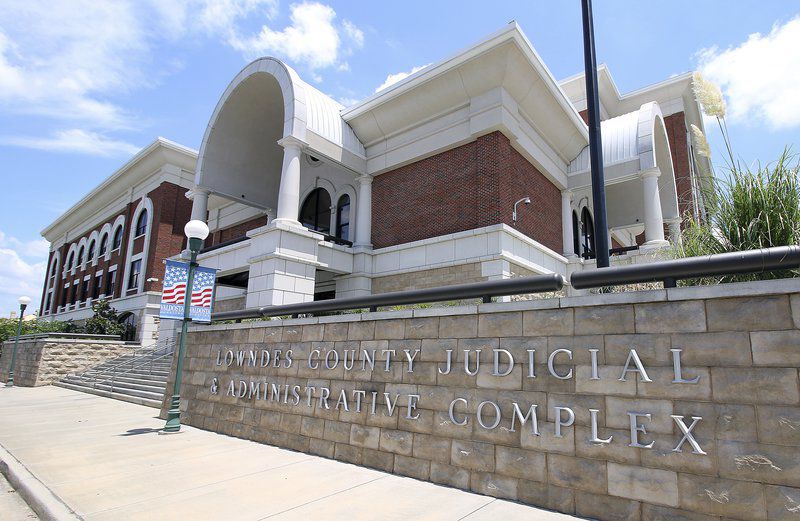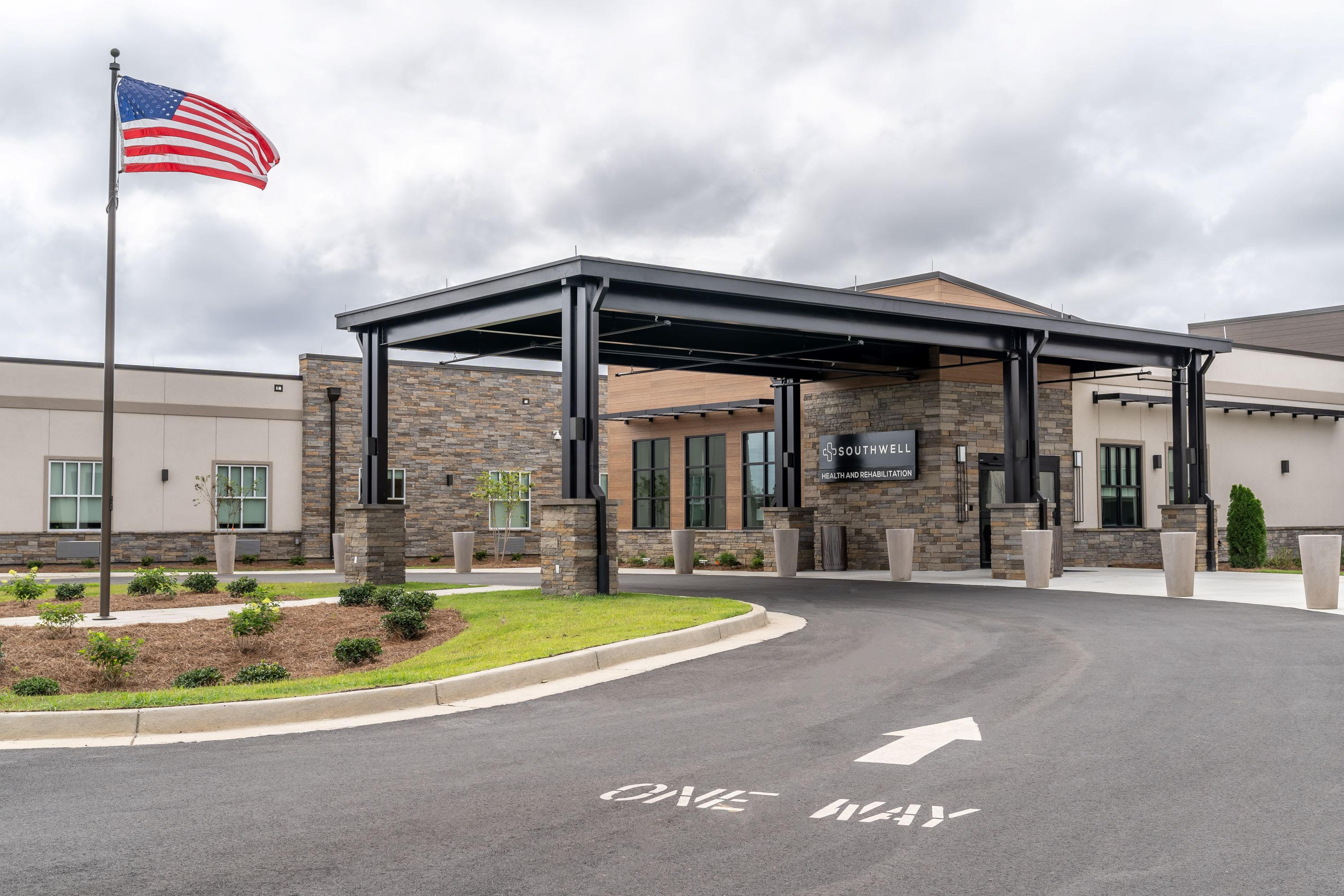Lawyer Up: Exploring the costs of government attorneys
Published 4:00 am Sunday, May 21, 2017

- Derrek Vaughn | Valdosta Daily TimesLowndes County has spent close to half a million dollars on legal costs for the current fiscal year.
VALDOSTA — Across the region, city and county governments spend mountains of cash every year on lawyers.
Governments use attorneys for a cornucopia of issues. It might be representation in a lawsuit or reviewing the legality of a new ordinance.
Trending
Mainly, attorneys offer advice and expertise to elected and appointed officials, and they say that advice can prevent governments from making legal missteps that could come back to bite them.
In the SunLight Project coverage area — Valdosta, Dalton, Thomasville, Tifton, Milledgeville and Moultrie, Ga., and Live Oak, Jasper and Mayo, Fla., along with the surrounding counties — hourly rates for government attorneys can reach close to $200.
And that’s relatively low compared to what those lawyers charge other clients, many say.
From the big counties to the rural towns, here’s what governments in the region spend on legal fees each year — as well as how local leaders justify the steep costs.
Valdosta & Lowndes County
Lowndes County (population 114,000) budgeted $450,000 for legal costs for the current fiscal year, that ends June 30. With a month and a half to go, the county is over budget at $484,000.
Trending
The county’s current legal battle with the City of Valdosta over a state-mandated joint Service Delivery Strategy agreement has contributed to the higher than expected legal costs, County Commission Chairman Bill Slaughter said.
The SDS dictates how services throughout the city and county are funded, and the two governments have been arguing for months in an attempt to nail down the details of the agreement.
Slaughter said he’d hoped to resolve the issue before it spilled over into legal action, but that didn’t happen. The legal representation required for the spat is what drove the county over budget on its legal costs. And those costs are sure to rise even higher as preliminary hearings on the SDS battle start this month.
Although Valdosta and Lowndes are bitterly opposed when it comes to the SDS, the two governments both say they think attorneys are worth their wages.
That wage is $190 an hour for the county attorney, Walter Elliott, and his firm Elliott, Blackburn, and Gooding, which has been representing the county for decades. The county does not pay a retainer fee.
The City of Valdosta also shares a long, established relationship with its law firm, Coleman Talley. One of the firm’s attorneys, Tim Tanner, just took over as city attorney for George Talley, who had filled the seat for decades.
The city pays Tanner and his firm $185 an hour, as well as a $1,000 monthly retainer.
Local leaders argued that keeping the same law firm for so long ensures a legal representative with vast experience and prevents the need to retrain new lawyers on the intricate workings of local government.
“In my opinion, you can’t put a value on that,” Slaughter said.
Even though Tanner and Elliott are the official attorneys for the city and county, several lawyers from each respective firm do work for the city and county, depending on the case and expertise needed.
County leaders said Elliott’s biggest responsibility is keeping the county out of trouble and preventing county leaders from stumbling into legal pitfalls that drain the community of resources and revenue.
“We are a much more litigious society than we’ve ever been before,” County Manager Joe Pritchard said. “We have a fiduciary responsibility to the taxpayers to provide the most efficient and effective government that we possibly can. A key role to that is (the county attorney).
“It is much, much better in my experience to talk to your attorney before you have a problem than afterwards.”
Elliott regularly meets with Pritchard to discuss the county’s legal cases, and “there’s probably 40 or 50 on the list at any given time,” Elliott said.
Legal representation isn’t always about the money and the bottom line, Elliott said. His services ensure the “trust of the public” remains strong and that taxpayers’ interests are properly defended, he said.
When it comes to the SDS lawsuit, city and county leaders both feel the other party’s demands are unfair to the taxpayers they represent, and said legal representation — along with its large financial demands — is the best way to make sure residents on both sides are treated fairly.
Valdosta (population 56,000) paid $334,000 in legal costs for the 2016 calendar year. Of that, $284,000 went to Coleman Talley.
The city’s legal budget for the current fiscal year, ending June 30, is $368,000.
Tanner deals with all kinds of city cases, except those covered by an insurance agency. He is also sitting out the SDS argument. Instead, the city has brought in lawyers from a firm in McDonough.
Mayor John Gayle said the city attorney benefits taxpayers by making sure the city doesn’t get into situations that are unnecessarily costly to the city and taxpayer.
“It’s something nowadays, you have to have an attorney. It’s just one of those things that you have to have,” Gayle said.
Tanner said representing the city is similar to representing a large corporation in the sense that “you perform a lot of different roles.”
“You may be involved in litigation at one moment. You may have some real estate issues to work upon. You may have some environmental issues,” he said.
The variety makes the job interesting, he said. Both Elliott and Tanner were appointed by their respective governments and are not under temporary contracts. They will remain in their positions unless or until the County Commission or City Council want to make a change.
Tanner said although people often complain about lawyers, legal services are a necessary part of today’s world.
“There’s an old saying that everybody hates all attorneys except their own attorney,” he said.
Thomasville & Thomas County
Legal counsel is an inevitable, costly expense in Thomasville and Thomas County governments, local officials suggested.
Thomasville (population 19,000) budgeted $155,000 for 2017 legal fees, a steep drop from the $253,000 spent in 2016.
In contrast, Thomas County (population 45,000) has about $45,000 budgeted for 2017 legal fees.
City and county attorneys respond to legal matters ranging from lawsuits, to open records requests, to habeas corpus cases filed by Thomas County prison inmates.
“The county’s always got lawsuits,” said Bruce Warren, county attorney.
Warren does not handle most lawsuits filed against the county. Lawyers from insurance companies that cover the county government take on those cases.
Thomas County has seven or eight pending lawsuits annually, Warren said.
Once or twice a year, Warren handles habeas corpus cases filed by inmates at the local prison. If the county government makes a decision to acquire right-of-way through condemnation, Warren handles it. He also prosecutes cases involving violations of county ordinances.
“We don’t have many of those, either,” Warren said.
County attorney since 1983, Warren was the county commission’s reapportionment attorney in the early 1980s, when a group of local African-American residents filed a lawsuit against the then all-white county commission elected by district voting. He soon became county attorney.
Tim Sanders, Thomasville city attorney and son of Will Sanders, former longtime city attorney, said his city workload makes up about 70 percent of his law practice.
Sanders, city attorney since October 2016, handles open records requests and zoning matters, reviews contracts, and tends to a full slate of matters concerning utilities, cable TV and phone systems, sanitation services, the Thomasville Regional Airport and recreation.
With about 450 employees, the city has a $150 million budget.
“It’s a fairly large organization that provides a lot of services,” Sanders said.
The city attorney is appointed by the city manager and is paid per billable hours for legal services.
Sanders, whose contract is reviewed annually, advises the city when an outside attorney is needed. He is responsible for retaining additional or substitute legal counsel when necessary.
“In some cases, the city’s insurer will provide legal counsel, and the city attorney is consulted when necessary,” City Manager Steve Sykes said.
Of the $253,000 the city spent in 2016 legal fees, $225,900 went to Sanders, Sykes said.
Like county government, the city has pending and ongoing lawsuits.
“The bulk of the suits are tort claims for either damage to person or property,” Sykes said. “Outside counsel will represent the city when the claim is covered by our insurer. The city attorney will represent when a claim is not covered by our insurer.”
County Manager Mike Stephenson said outside counsel — the Intergovernmental Risk Management Agency of the Association County Commissioners of Georgia — represents the county in lawsuits.
In 2016, $19,190 was paid to Warren — $9,000 for retainer and $10,190 for billable hours.
Warren’s retainer is reviewed every three to four years, at which time the commission requests new bids on retainers, he said.
Commission Chairman Ken Hickey said tax revenue paid to Warren is money well spent.
“Our attorney gives us legal representation and direction on issues we need guidance in,” Hickey said.
Noting Warren’s longevity as county attorney, Hickey said Warren is familiar with all aspects of county government and is prepared to provide appropriate legal services when and where needed.
Stephenson agreed.
“I think the costs are reasonable for the services received,” he said.
Live Oak & Suwannee County, Fla.
The Suwannee County Board of Commissioners pays Jimmy Prevatt, county attorney, $109,000 a year for counsel to the board.
Prevatt also assists the county (population 44,000) with general matters, and if Prevatt works for the county outside the scope of his contract, he bills the county for that work.
For 2016, Prevatt billed the county $97,825 for 21 separate cases, meaning the county’s legal fees for the year actually stretched to more than $200,000.
The county’s highest monthly bill for legal services was $14,245 and the lowest was $883.
On top of Prevatt, the county also pays outside counsel $3,900 for labor-related issues. This attorney reviews proposed changes to rules and regulations that will affect county workers or answers questions the county might have related to workers, said Randy Harris, county administrator.
Harris said the county is covered by the Florida League of Cities insurance. The insurance covers most of the county’s smaller, typical legal work. The county pays the league $1 million a year for insurance, which includes more than just legal fees.
In 2013, the county had a once-in-a-lifetime lawsuit that ended up costing the county more than $100,000 in legal services. This, Harris said, is incredibly uncommon and does not happen often.
The case involved TSS Development suing Suwannee County in 2010 when the county withdrew its efforts in developing a through-the-fence airpark (a community built near and tied into an airport that is geared to private plane owners).
In February 2007, construction began at Suwannee Landing, an upscale airpark located west of Live Oak, which is owned by TSS. It would have included an exercise facility, swimming pool, community room and nature trails.
At least 114 of the 250-plus planned homes would have had hangars to accommodate plane owners. Pilots would have easy access so they could taxi onto the Suwannee County Airport runway just west of the airpark.
The county first agreed with this project in the first stages of its development, but later refused to back TSS after being informed the Federal Aviation Administration ruled that allowing use of the county airport for such use was in conflict with FAA statutes.
When the county removed its seal of approval, the project came to a standstill and later devolved into a lawsuit between the county and TSS.
The City of Live Oak (population 7,000) paid a total of $39,300 in 2016 legal fees. The city paid $14,750 of that amount to retain a separate lawyer for the city council, the Community Redevelopment Agency and the planning board meetings.
Of that amount, $23,350 went to other city needs such as ordinances, contracts, policy reviews and consulting on city matters. And the city paid $1,200 for litigation and review of possible litigation.
For 2017, the city’s litigation fees have already reached $14,600 — more than 10 times what it was for all of last year. The reason for the increase is the city decided to pay $9,600 in legal fees for a past city council president.
To discover how much governments pay lawyers in other local communities, pick up the Tuesday, May 23, edition of the Valdosta Daily Times.
Dalton & Whitfield County
Robert Smalley, Whitfield County attorney, isn’t a policy adviser, he said. He doesn’t tell county commissioners what to do but rather if they are operating within the boundaries of the law.
“My role is to make sure that any policy that the commissioners enact is done so in accordance with the law. It isn’t to advise them on whether that policy is good or bad,” said Smalley, who has represented the county for more than 15 years.
Smalley is an attorney with the McCamy Law Firm, and his hourly rate is $87.
Whitfield County (population 104,000) spent a little more than $220,000 on legal fees in 2016, a little more than the $210,000 that was budgeted.
While some local government attorneys are employees of that government, County Administrator Mark Gibson said it’s more beneficial to contract with a firm.
“When you utilize a firm such as Robert’s, you have attorneys with many different specialties, but they all bill at the same rate,” he said.
Smalley first started working with the county more than 20 years ago. Another attorney in his firm was the county attorney at the time, and the county was adopting its first zoning law.
“I became the subject matter expert on zoning ordinances and zoning procedures for the county, and it just sort of grew from there. I enjoy the work, too,” he said.
At meetings, Smalley provides expertise on contractual issues and procedural questions on the right way to run the meeting.
Gibson said dealing with a local firm that’s easily accessible is a great advantage.
“I like the idea that I can just walk across the street and talk to Robert if I need to,” Gibson said.
Smalley handles all legal work for the commissioners as well as the county’s other elected officers. The only exception is when the county is involved in a lawsuit.
Then the county’s insurance company will choose its lawyer, but he says when that happens, he stays in close contact with the lawyers so he can keep commissioners updated.
Smalley said during the last 15 years, laws governing local governments have become increasingly complicated.
“The level of specialization required has really grown. It would be hard for a general practitioner to jump in and master all of the intricacies of local government law,” he said.
The City of Dalton (population 34,000) has budgeted $105,000 for legal services this year. It spent a little more than $106,000 last year.
Jim Bisson of the Minor Firm has served as city attorney since 1999. He handles most legal work for the city except lawsuits, which are handled by insurance company attorneys.
Mayor Dennis Mock said it’s hard to compare Dalton’s legal fees to similar cities.
“Even if two cities are the same size, they might have different legal needs. One might be doing more condemnations, for instance,” he said.
“I do know that the council does keep an eye on our legal expenses and if something ever comes up that we don’t understand, we ask questions.”
Tifton & Tift County
Tift County Manager Jim Carter said legal costs fluctuate from year to year, depending on what legal issues the county anticipates coming up for that year.
The county’s legal fees for fiscal year 2016 totaled $333,000, which was well above the budgeted amount of $275,000. Almost all of that amount went to county attorney Tony Rowell and his firm, Hall, Booth and Smith.
The county attorney is appointed each year, held on retainer and paid an hourly rate. Rowell handles most of the county’s legal business, except for insurance cases or cases outside of his expertise.
Normally the county can estimate how much it needs for legal representation, Carter said, but the recent widening of Carpenter Road shows how such estimates can be hit or miss.
Because it was a big road project with federal funds, the county had to appraise every parcel of land and make an offer on it, and the attorney had to be on hand to close on each transaction.
However, in addition to the project covering a large area, there were some property owners who felt their land was worth more than the appraiser said it was and were willing to go to court to try to get more money out of the county.
The county attorney had to represent the county in the litigation for that as well as for the closing on the property, which was not expected.
The entire situation is what drove legal costs over budget for 2016.
For fiscal year 2017, the county budgeted about $182,000 for legal costs.
Carter said legal fees are absolutely justified, especially “based on the amount of litigation” the county bumps into.
The City of Tifton (population 17,000) currently has two pending lawsuits that the city attorney, Rob Wilmot, is handling.
One case is about whether a cremation unit is a nuisance at a funeral home; the other involves the city seeking an injunction to prohibit the leasing of rooms due to violations of the fire code which the city says constitutes an imminent danger to life and property.
Wilmot was appointed by Tifton City Council, and his hourly rate is $185. His contract is reviewed “as needed.”
For calendar year 2016, the city paid Wilmot $171,000, which was slightly more than the $160,000 the city had budgeted for legal fees.
Similar to most government lawyers, Wilmot has a hodgepodge of duties: drafting ordinances, reviewing contracts, providing consultation on zoning issues and code violations, representing the city in personnel matters, and offering legal guidance at city meetings, among other things.
Milledgeville & Baldwin County
In 2016, the City of Milledgeville (population 19,000) shelled out more than $200,000 in legal costs.
The majority of that amount came from legal fees, but $64,800 was a retainer fee paid to the city attorney, D. James “Jimmy” Jordan, and his firm, Adams, Jordan, & Herrington. Another chunk of that $200,000 — $17,500 to be exact — was paid for litigation and special projects, work that is paid on an hourly rate.
Jordan is on hand to attend city meetings and to consult with City Manager Barry Jarrett and other local leaders on pending litigation and special projects when necessary.
Meanwhile the county attorney, J. David McRee, is under contract with the Baldwin County Board of Commissioners for his legal services. He has represented the county (population 45,000) since 2010.
But the county often uses outside counsel for specialized legal matters, such as cases involving property or liability insurance or prison inmates.
Moultrie & Colquitt County
Government attorneys for the Colquitt County Board of Commissioners, Colquitt County School Board and Moultrie City Council are paid $150 an hour.
For the current budget year, which ends May 31, Colquitt County (population 46,000) budgeted $55,000 for legal services, and through May 9, $54,813 of that amount has been spent.
Showing up at meetings to keep the commissioners on the straight and narrow and address the public’s questions is only part of the job for such lawyers.
Hardly a week goes by without a county department head, county commissioner or someone else in county administration calling with a legal question, said Lester Castellow, who has served eight years as attorney for Colquitt County Commission.
Castellow’s contract is reviewed on a yearly basis.
His most common tasks are drafting contracts, advising county personnel on legal issues to give them guidance in their daily work, and drawing up ordinances.
Castellow, who replaced Moultrie attorney Bill McCalley when he retired, said there was a learning curve when he first started handling the county’s legal matters.
The county attorney’s contract, which is renewed annually in January, calls for Castellow to earn $150 per hour, which is the same rate paid to Colquitt County School Board Attorney Bill McCalley and Moultrie City Attorney Mickey Waller.
Last year’s budget allotted $40,000 for legal services. The year was an anomaly because the county faced a challenge regarding land it sold at the intersection of Highway 37 at Veterans Parkway.
Another $26,000 or so was tacked onto that $40,000 in fighting a lawsuit related to the selling of county-owned land for the development of a Publix Shopping Center. A second bidder disputed the bidding process and the case ultimately was dismissed by a judge in Colquitt County Superior Court.
When the county was dealing with the lawsuit regarding Publix, two budget amendments totaling $25,600 were added to the budget out of savings to pay the fees of the Macon law firm James Bates Brannan & Groover.
A government attorney also comes in handy when the county is responding to open records requests, according to officials.
Violating open records and meetings laws can end up costing the county if a citizen files a successful lawsuit, so dealing with the issues is one way in which the county attorney’s worth is evident.
Castellow and other attorneys working for local governments said their $150 hourly rate is a discount from what the general public pays for legal services.
Castellow’s work saves the county money in the long run by eliminating potential legal problems early, County Administrator Chas Cannon said.
“We live in a very litigious society, unfortunately,” he said. “You want to make sure you protect the country from lawsuits when you can.”
Castellow’s value lies in letting county officials know when they are veering into shaky legal ground, Cannon said.
Castellow said he also gives advice to county workers in their day-to-day business as they have questions, and on occasion he speaks with members of the public, not offering them advice but explaining why the commission took certain actions or positions.
Mickey Waller, the attorney for the City of Moultrie (population 14,000), is also appointed on a yearly basis. His fees for the 2015-16 budget year were $45,589, and through the current fiscal year his fees total $26,749.
The city’s property insurance provider, the Georgia Interlocal Risk Management Agency, paid out $152,800 in 2016 liability claims for all departments.
The SunLight Project team of journalists who contributed to this report includes Thomas Lynn, Jordan Barela, Charles Oliver, Billy Hobbs, Alan Mauldin and Eve Guevara, along with the writer, team leader John Stephen.
To contact the team, email sunlightproject@gaflnews.com.





